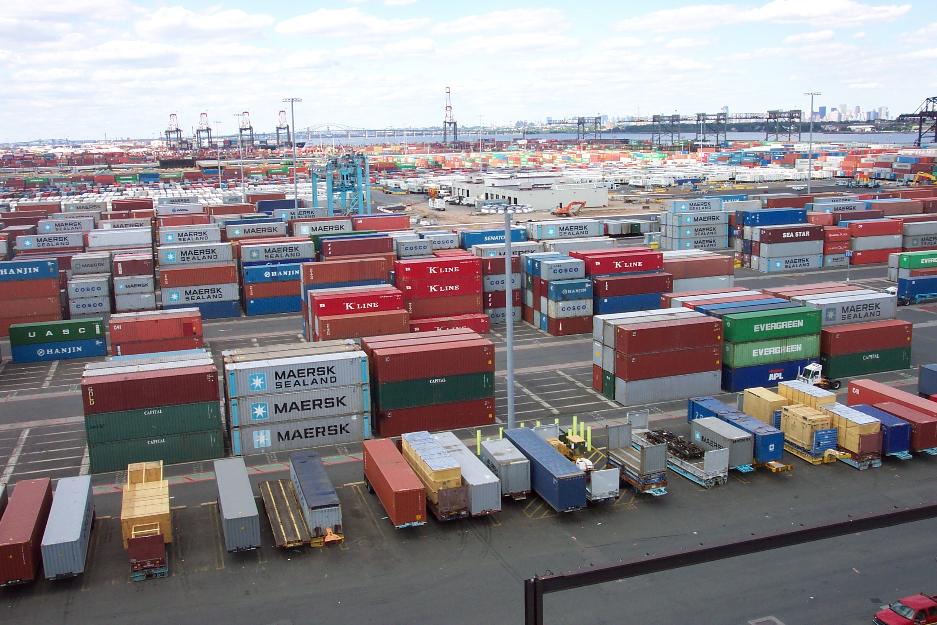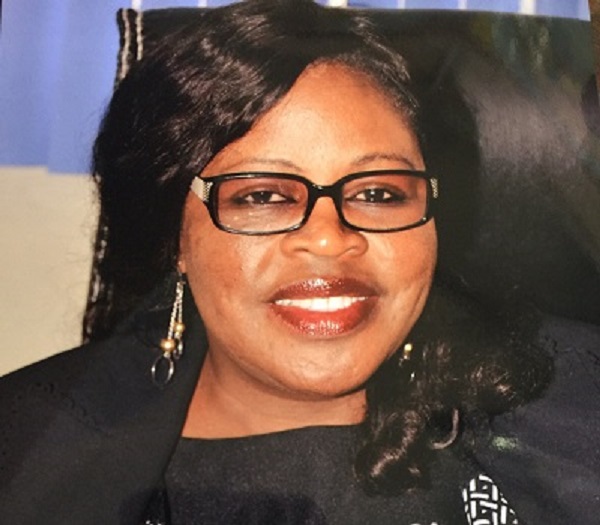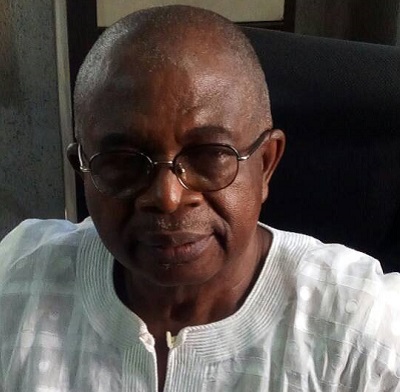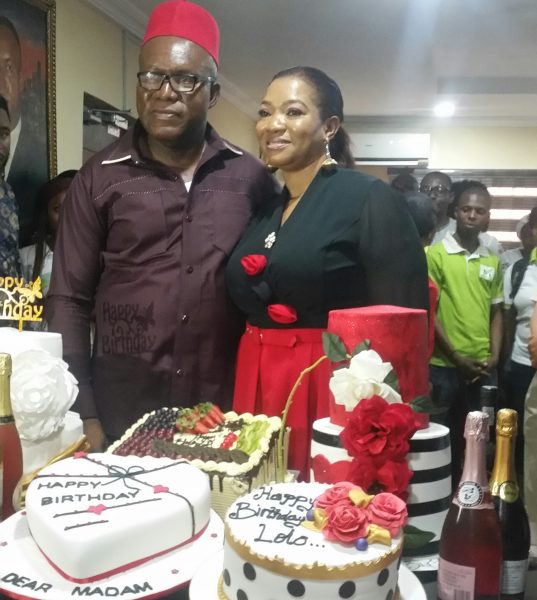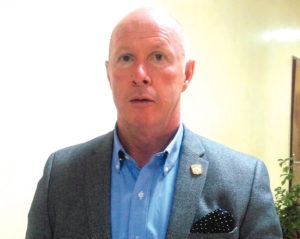Nigeria Needs Vibrant Steel Sector For Ship Building – Orakwusi
By Kenneth Jukpor
Barr. (Mrs.) Margaret Orakwusi is the Chairperson, Nigeria Ship-Owners Forum and Chief Executive Officer, MORBOD Group. During the 2019 MMS Transport Leadership lecture and awards, she spoke with MMS Plus newspaper on the sidelines, addressing several pertinent issues in the nation’s transport sector with emphasis on maritime. Enjoy it:
Today’s event has been on the Nigerian Transport Sector and what this lecture implies for the industry?
The transportation sector in Nigeria cannot be effective with the regulatory issues in place. That’s why stakeholders were anxious about the National Transport Commission (NTC) bill. We may have to go back to the drawing board because that has to happen. Transportation must be regulated.
When it comes to infrastructure, the emergence of the African Continental Free Trade Agreement (AfCFTA) means that we have to drive efficiency at our ports; we also have to ensure that the infrastructure would carry the volume of goods we are expecting whether for import or export.
We already know the condition of the ports and the connecting roads to the ports. There has been an improvement in the railway that has been connected to the ports but we hope to see more improvement. Aside the ports in Lagos, it is also important that the ports in other parts of the country come to life.
Beyond infrastructure, Nigeria also needs to have a single window platform that would allow seamless cargo clearance. We need to be a nation operating in 21st century with the use of modern technology. We can’t continue to use human beings because the opportunity for human interface usually leads to corruption and extortion.
Recall that the former Minister of Transport once drove himself to the Seme border and he counted twenty-six illegal checkpoints. Does this augur well for an international business route? This is the question we need to ask ourselves as we try to ensure efficiency. A good businessman is concerned about efficiency and the shipping companies want a shorter turnaround time. Nobody wants to pay demurrage when it can be avoided.
One of the stakeholders at this event stressed the need to unbundle the Nigerian Ports Authority (NPA) to ensure competition at Nigerian ports. Do you subscribe to this?
Competition drives efficiency and efficiency attracts people to what you are doing. When you have a giant who isn’t faced with competition, you would never get the best. So, if we are going to have efficiency, we must have competition.
Remember the telecommunications industry when we had only NITEL, it was really cumbersome. However, when we unbundled that, it allowed other players into the industry. Today, everyone has a choice to check for the most efficient network and you can also compare the cost. There’s serious competition among these operators to the extent that they offer some free services as incentives to attract more subscribers.
Unbundling brings competition which would bring down the cost and make people know that they have choices. This also breaks down monopoly and I believe that it may be the right way to go.
Last year, NIMASA and the Nigerian Content Development and Monitoring Board (NCDMB) made efforts to introduce some incentives for the shipping industry especially for ship-owners, but there is little or no incentive for indigenous ship-owners compared to the aviation industry. How’s the situation?
There’s no incentive for us because we are still paying duties and heavy duties for that matter. We are still buying foreign currency from the black market like every other person. We still go to the commercial banks to obtain loans at exorbitant rates and we are expected to compete with people from other climes who have incentives and access to cheap funding.
In Nigeria, I still don’t understand why we cannot reverse the trade term. All over the world, if you generate cargoes you dictate how your cargo would be carried out. So, Nigeria is losing in the freight of its cargoes because indigenous ship-owners don’t partake there. When you talk about losses in freight, it is in billions of dollars annually. We are also losing in terms of employment. I believe that the good thing to do is to try to lock down the opportunities that create employment in the hands of indigenous operators. We are also losing in terms of services like banking, insurance, among other areas.
I can go on to name numerous areas where the nation is losing because it doesn’t add value to the wet cargo. We just sale it as crude and the buyer dictates all the terms. I don’t think that these decisions are in the best interest of the country and I don’t care whatever reasons are being given in order not to reverse the trade terms. I believe that Nigeria and Nigerians would benefit a lot if we reverse the terms. That singular action would create a lot of employment for people in this country. It breaks my heart to see the large number of Nigerians that are unemployed, yet we have a youthful population. Most young people have taken to drugs out of frustration because there is no employment. We need to think and start creating employment for our youth.
Recently, NIMASA introduced a scheme to stop the issuance of waivers to all categories of fishing trawlers and other categories of vessels by 2020 and they are also engaging stakeholders via the NIMASA Stakeholders Joint Committee. What’s your opinion on this?
This is a good development and it is also very apt that stakeholders are being carried along. We are members of that committee and this initiative is work in progress. I hope this succeeds because it has the potentials to solve a lot of problems. However, it is still a work in progress.
Do you think Nigeria would be able to achieve the target of building such vessels by 2020?
That is a mistake we make about building vessels. I have built vessels in Poland and America. There is no single shipyard that builds vessels from scratch to the top. We could have different boat yards specialized in several aspects of boat building and we can come together via partnerships to make this possible.
There is also another challenge because building a vessel isn’t all within the transport industry. We would have talk about steel. What is happening at the Ajaokuta Steel Company? We need to add up and get the steel industry going before we can seriously talk about building ships in Nigeria.
The issue of trade and the availability of cargoes was very crucial in the discourse at the event today. Does Nigeria have sufficient cargoes to support its shipping goals?
There is no dispute about the fact that Nigeria generates a lot of crude oil and we sell a lot of crude. The wet cargo is there and Nigeria ranks high among the top oil exporters. Is Nigeria partaking in the enormous freight income in that export? No!
People are thinking that Nigeria imports a lot and that’s true but we can drive efficiency in crude affrieghtment. We can drive efficiency in agriculture production and other areas. We really have no choice with the AfCFTA because nobody would wait for Nigeria to wake up to do the right thing. This fear led some people to object to Nigeria signing that agreement, but how long would we have objected to this? The world can’t be awake and making progress while Nigeria continues sleeping. This is competition and this should push Nigeria to get it right and play the prominent role when it comes to shipping in the continent. We need to drive efficiency and face competition because it aids development.
The young ones in Nigeria are driven by innovation so let’s give them an opportunity. Let’s encourage them to put on their thinking caps and lead the positive changes in the country.
Talking about competition, do we still have foreign unlicensed vessels fishing on Nigerian waters, how is the regulation?
The regulation isn’t working because we can’t effectively monitor what happens on the high seas. We still have big foreign vessels come into our waters to poach our resources and return unchallenged without flying Nigeria’s flag.
We have numerous laws that aren’t been implemented. The regulators must go out to monitor what is happening and catch these poachers. I’m yet to hear that a foreign big vessel not licensed to fish on Nigerian waters has been caught. Meanwhile, I can’t go to any country, even Benin Republic to fish there without having a proper license granted to me by the authorities. People come to Nigeria to fish in the most inappropriate manner carting away with all sizes of fishes and other aquatics and they leave. That is stealing but maritime security is very expensive.
We are also calling on the international bodies to curb this menace and they can easily do this because they issue license and approval to sell fishes. The big question is where do these big time poachers sell their products? They sell it to Europe. So, there is a conspiracy and we all have to rise up, speak up and make the world know. They shouldn’t always point accusing fingers to Nigeria for doing the wrong thing when they support this stealing. These criminal activities are carried out by big foreign vessels operators and the fact that we haven’t been able to catch or arrest them doesn’t mean that they should have an available market abroad for their products.




